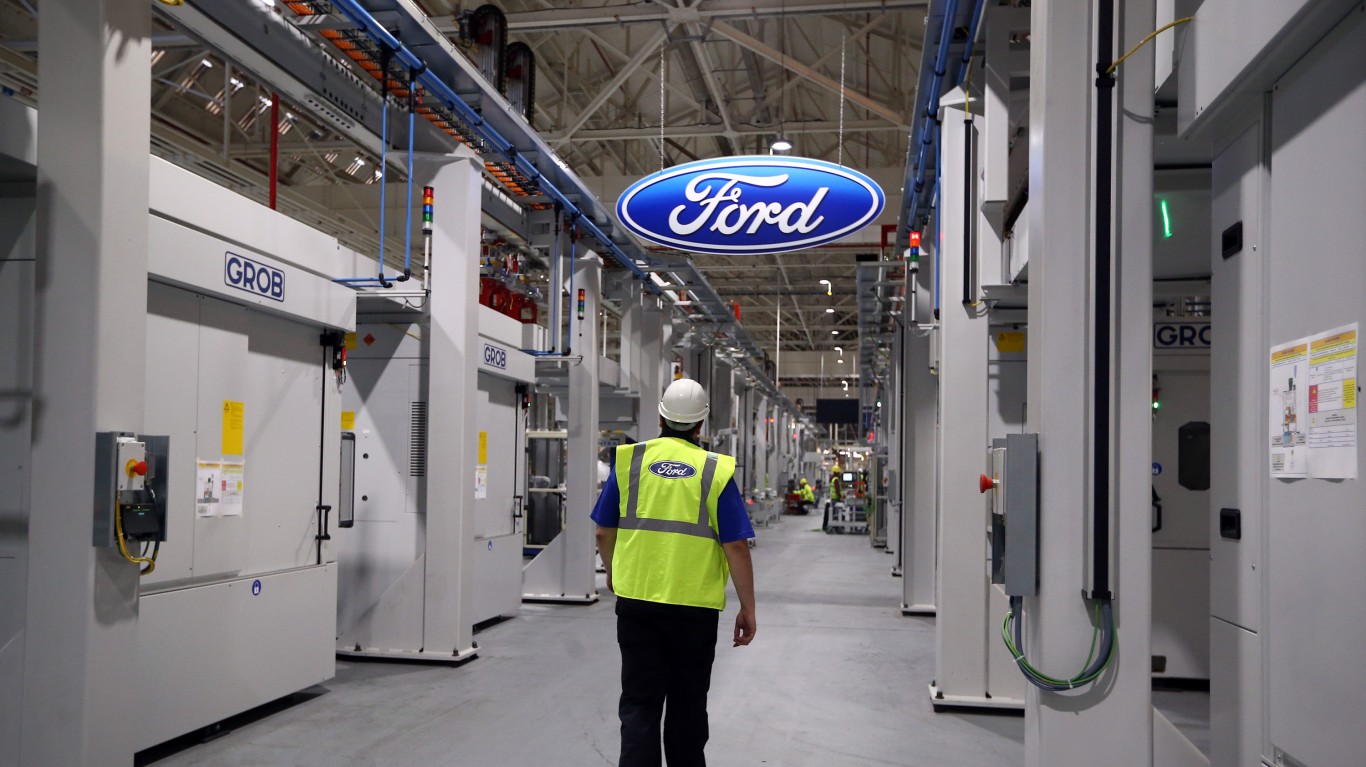
Last week, Ford Motor Co. (NYSE: F), General Motors Co. (NYSE: GM) and Fiat Chrysler Automobiles N.V. (NYSE: FCAU) reached an agreement with the United Auto Workers Union to halt operations until the end of March in order to make the companies’ workplaces safer for workers, after the coronavirus pandemic spread throughout North America, South America and Europe.
On Monday morning, Ford announced that assembly plants in India, Vietnam, Thailand and South Africa shut down on March 21. The closures are expected to last “several weeks.” The duration of the closures will depend on the pandemic situation, national restrictions, supplier constraints and dealer stock requirements.
Of all those dependencies, none is more important to Ford than the question of how many light vehicles dealers think customers will buy? Even when North American production resumes, will there be shoppers with money in their pockets to buy? Will they be able to leave the house?
What Ford Is Up Against
Because the Detroit Three automakers no longer report monthly U.S. sales, investors have to wait until the end of a quarter to get sales totals. Those typically would be announced next week, but these are not typical times.
Last week, the European Automobile Manufacturers Association (ACEA) reported that new registrations (a proxy for sales) in February fell by 7.4% year over year. The January decline was 7.5%, and neither month really takes into account the impact of the coronavirus pandemic.
In Italy, the European country hardest hit by the pandemic, auto sales were down 8.8% in February and down 7.3% over the first two months of the year. The country essentially has been shut down for more than two weeks now, and sales are sure to be down in double digits for March.
Ford’s sales fell 19.8% year over year in February but were up 0.8% for the first two months of the year following solid January sales. Ford’s market share in Europe dropped from 5.6% to 4.9% in February, while year-to-date share rose from 4.5% to 4.8%. That latter increase is a slightly larger share of a market that has tumbled by 7.4% year over year in the first two months.
GM stopped selling light vehicles in Europe more than two years ago, and Fiat Chrysler sales, though better than Ford’s, were down 7% in February and are down 6.8% for the year to date.
Sales in China Won’t Help Either
As with U.S. sales, Ford now reports Chinese sales only every quarter. Fourth-quarter 2019 sales were down 14.7% year over year, and full-year sales were down 26.1% compared with 2018 sales.
The company’s CEO for Greater China blamed the decline on, “pressure from the external environment and [a] downward trend of the industry volume” that Ford expects to last into 2020. Ford lost $771 million on its Chinese business last year. This year is shaping up to be much worse.
All that happened before the coronavirus outbreak in China. While the bulk of the impact fell on Hubei province and the city of Wuhan, the impact on Ford and other automakers was nationwide and nasty. Sales plunged 92% in just the first 16 days of February.
Will the Dividend Be Enough to Save Ford?
Ford set its annual dividend at $0.60 per share in 2015. Since then it has risen to as much as $0.83 in 2017 before settling back down. The yield at that $0.60 level is around 13.4% based on the current stock price. That kind of generosity to shareholders almost certainly will have to be reeled in.
The company’s balance sheet is no thing of beauty either. Ford reported $34.6 billion in cash and short-term investments at the end of December. The company’s automotive long-term debt amounted to $13.23 billion, and the credit group’s long-term debt totaled $87.66 billion.
It’s true the interest rate on the debt is low, and Ford can still pay dividends out of operating cash flow. Yet, Wall Street is looking for companies that can take a meteor strike right now. Ford is not one of them.
It’s Your Money, Your Future—Own It (sponsor)
Are you ahead, or behind on retirement? For families with more than $500,000 saved for retirement, finding a financial advisor who puts your interest first can be the difference, and today it’s easier than ever. SmartAsset’s free tool matches you with up to three fiduciary financial advisors who serve your area in minutes. Each advisor has been carefully vetted and must act in your best interests. Start your search now.
If you’ve saved and built a substantial nest egg for you and your family, don’t delay; get started right here and help your retirement dreams become a retirement reality.
Thank you for reading! Have some feedback for us?
Contact the 24/7 Wall St. editorial team.
 24/7 Wall St.
24/7 Wall St.



